If you’re searching for affordable Vanta alternatives, you’re probably trying to automate SOC 2, ISO 27001, HIPAA, or GDPR compliance without the hefty annual cost that comes with Vanta. Vanta is one of the top names in compliance automation, but many startups and growing SaaS businesses find its pricing (often above $10,000–$25,000 per year) to be out of reach.
The good news? There are now several budget-friendly compliance automation tools that offer similar features — continuous monitoring, automated evidence collection, risk assessments, and faster audit readiness — at a lower price.
In this detailed guide, we’ll compare the 10 best affordable Vanta alternatives based on pricing, features, pros, cons, and who each tool is best suited for.
Why Businesses Look for Vanta Alternatives
Vanta helps organizations achieve and maintain compliance through automation. It integrates with your systems to continuously collect evidence, monitor controls, and simplify audits. But there are reasons you might want to explore other options:
Cost: Vanta’s pricing starts around $10,000–$25,000 annually depending on your frameworks.
Limited flexibility: Some users want more control or customization than Vanta offers.
Framework expansion: Companies that need more than SOC 2 (e.g., ISO 27001, HIPAA, GDPR) often find cheaper multi-framework options.
Audit partnerships: Other tools provide integrated audit partners that bundle the entire process at a lower cost.
Whether you’re a startup or an enterprise scaling compliance programs, choosing the right alternative can save thousands annually while maintaining trust and credibility.
1. Sprinto — Startup-Friendly and Affordable
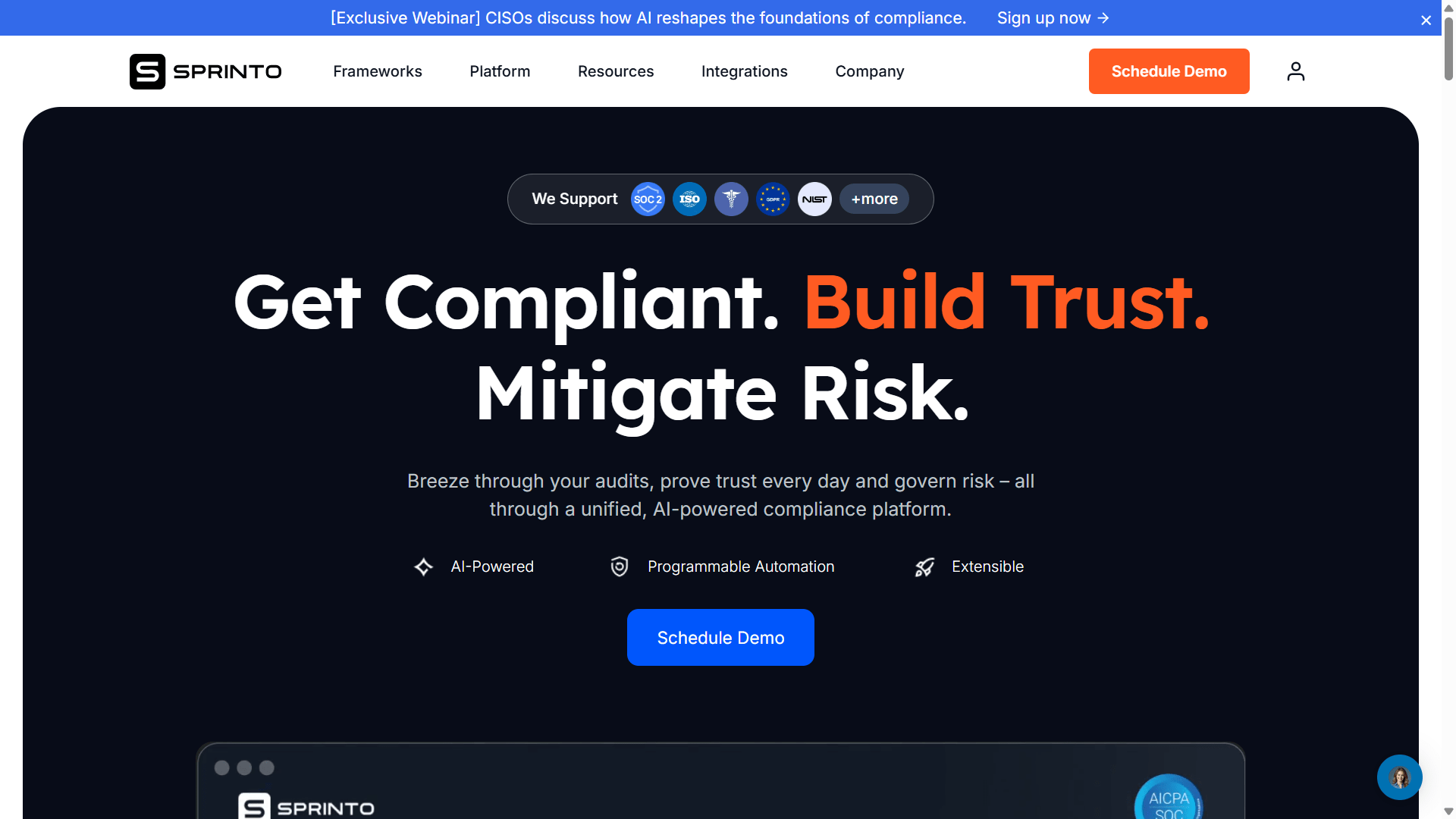
Overview:
Sprinto is one of the most popular and affordable compliance automation platforms for early-stage startups. It helps companies get SOC 2, ISO 27001, HIPAA, and GDPR ready quickly with pre-built templates, integrations, and automation.
Key Features:
Continuous control monitoring
Automated evidence collection
Real-time compliance dashboard
Built-in auditor support
Pricing:
Starts around $4,000–$5,000 per year for small startups (custom pricing for larger companies).
Pros: Fast onboarding, low price, startup-focused support.
Cons: Fewer advanced GRC capabilities compared to enterprise tools.
Best for: Seed to Series A startups that want a quick, affordable SOC 2 certification path.
2. Drata — Best for Deep Automation and Integrations
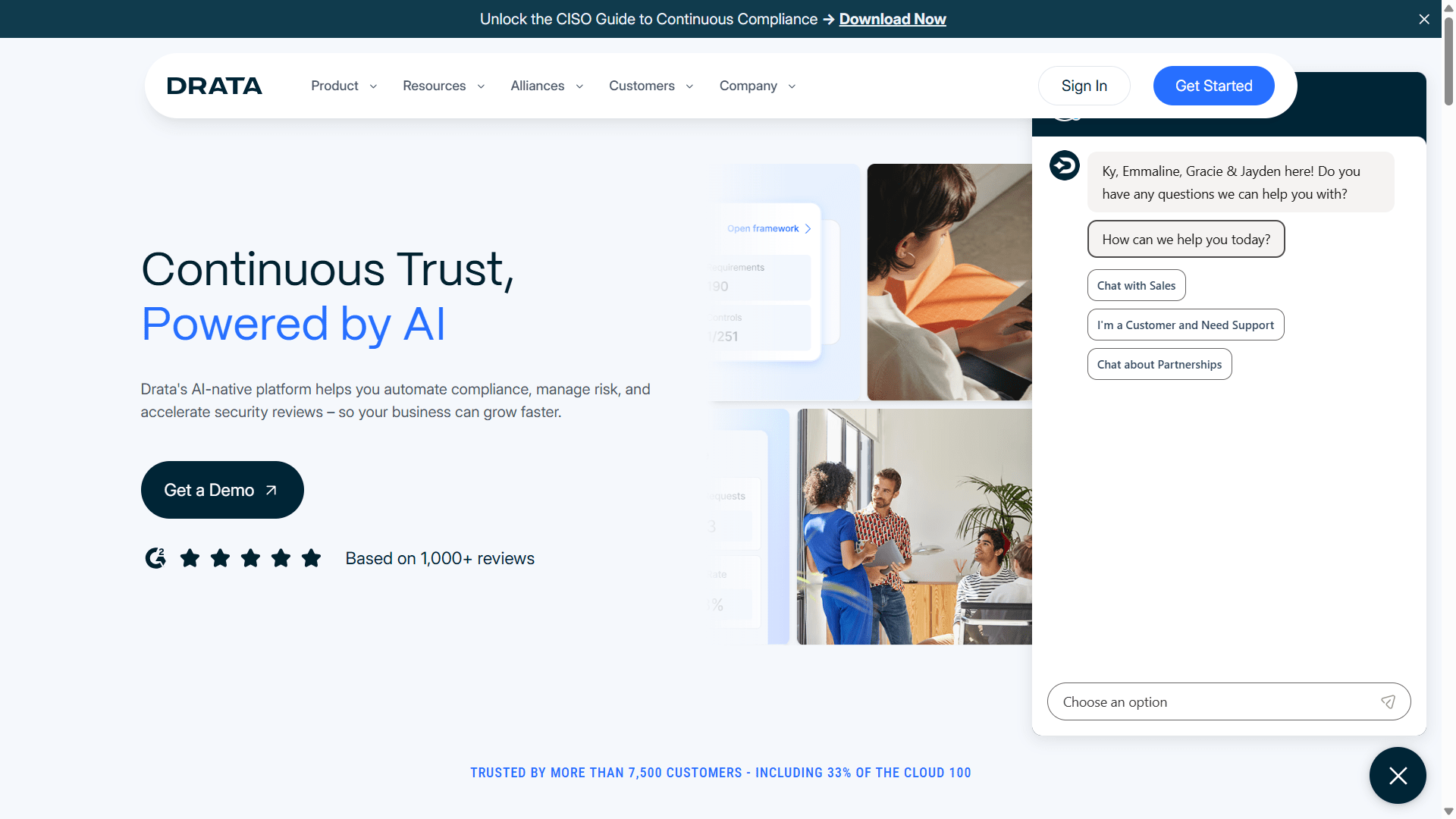
Overview:
Drata is often considered the most direct competitor to Vanta, known for powerful automation and a polished user experience. It supports SOC 2, ISO 27001, HIPAA, and GDPR.
Key Features:
120+ integrations with cloud and HR tools
Automated monitoring of controls
Real-time audit readiness dashboards
Built-in trust center
Pricing:
Custom quotes; typically starts around $10,000/year, depending on company size and frameworks.
Pros: Great automation depth, wide integration support.
Cons: Costs can increase with more frameworks or team size.
Best for: Growing SaaS companies that want scalability and best-in-class automation.
3. Secureframe — Guided Compliance at Predictable Pricing
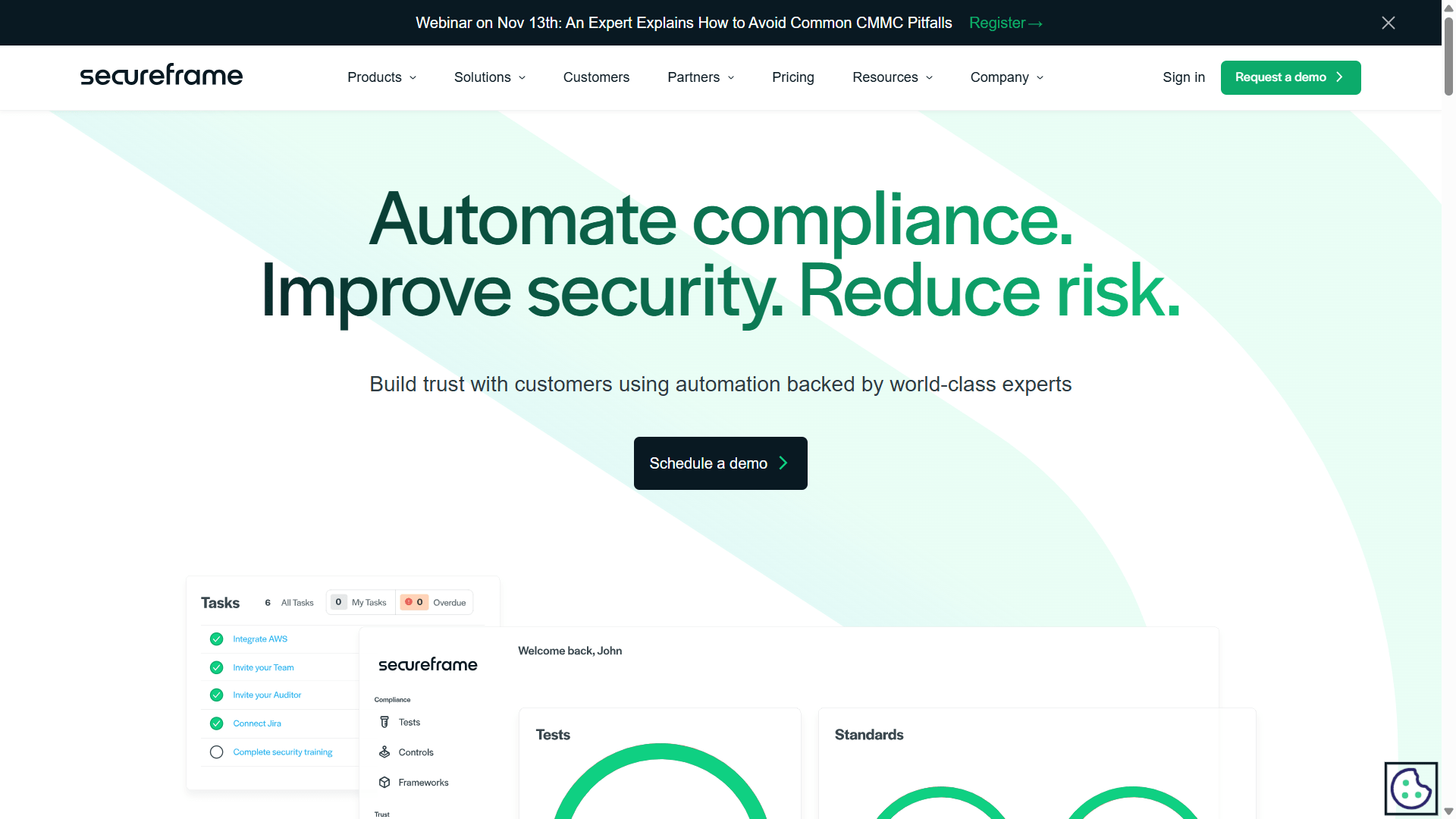
Overview:
Secureframe simplifies the compliance journey by combining an easy-to-use platform with dedicated compliance managers. It’s trusted by startups and mid-sized companies.
Key Features:
Pre-built controls and templates
Continuous monitoring
Dedicated compliance support
Automated risk management
Pricing:
Starts around $7,500/year for small teams.
Pros: Great human guidance and fast setup.
Cons: Limited flexibility in pricing for micro-startups.
Best for: Companies that prefer a guided onboarding process and predictable pricing.
4. Strike Graph — Flexible and Transparent Pricing
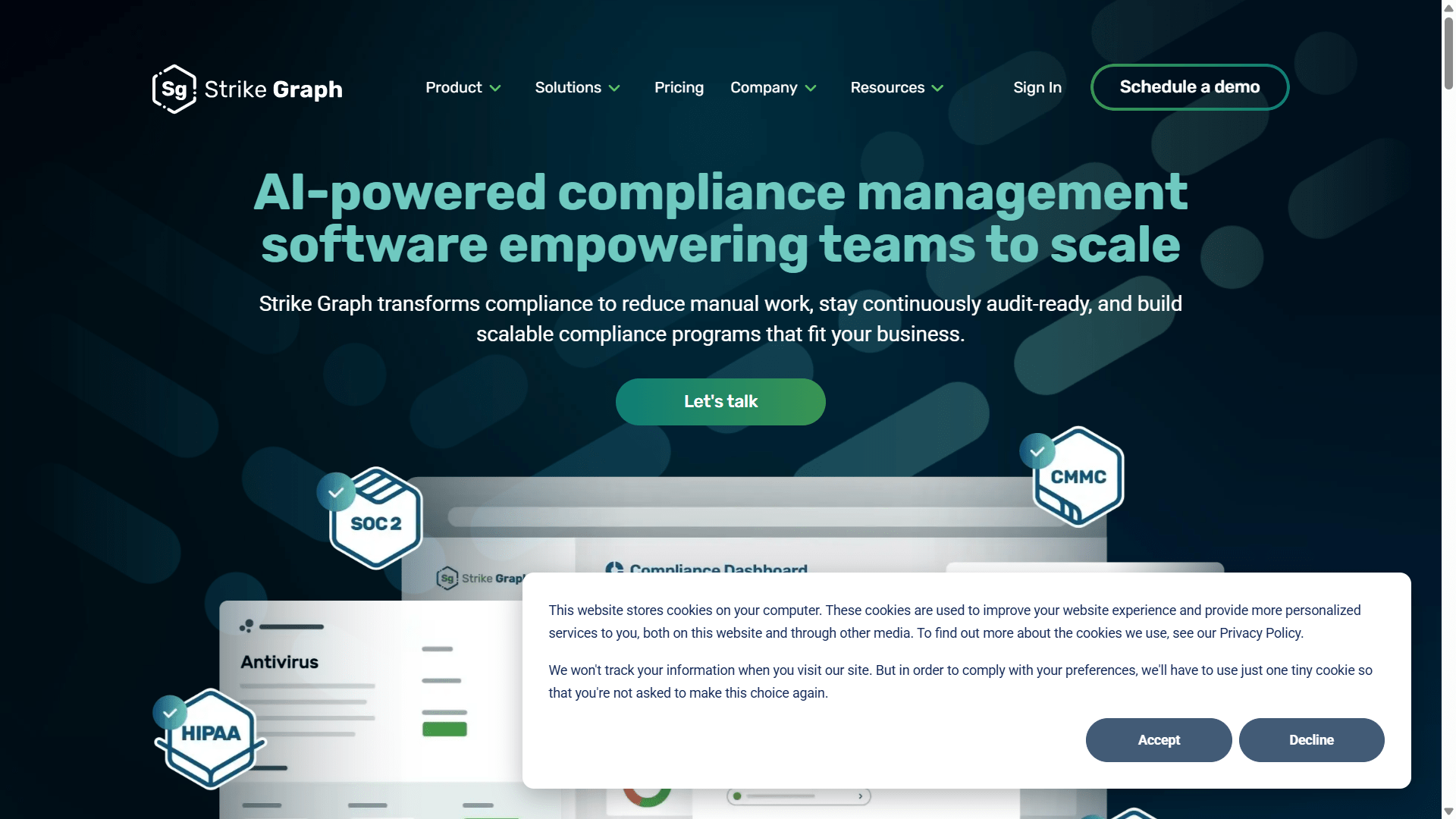
Overview:
Strike Graph provides an end-to-end compliance platform with modular pricing. You can choose only what you need — from readiness to full audit management.
Key Features:
Modular pricing (pay for what you use)
SOC 2, ISO 27001, GDPR support
Evidence automation
Auditor network
Pricing:
Around $4,000–$8,000 per year, depending on scope and frameworks.
Pros: Transparent pricing and easy scalability.
Cons: Advanced analytics require higher-tier plans.
Best for: Startups that want a budget-friendly yet scalable SOC 2 solution.
5. Scrut Automation — Best for Fast-Growing Teams on a Budget
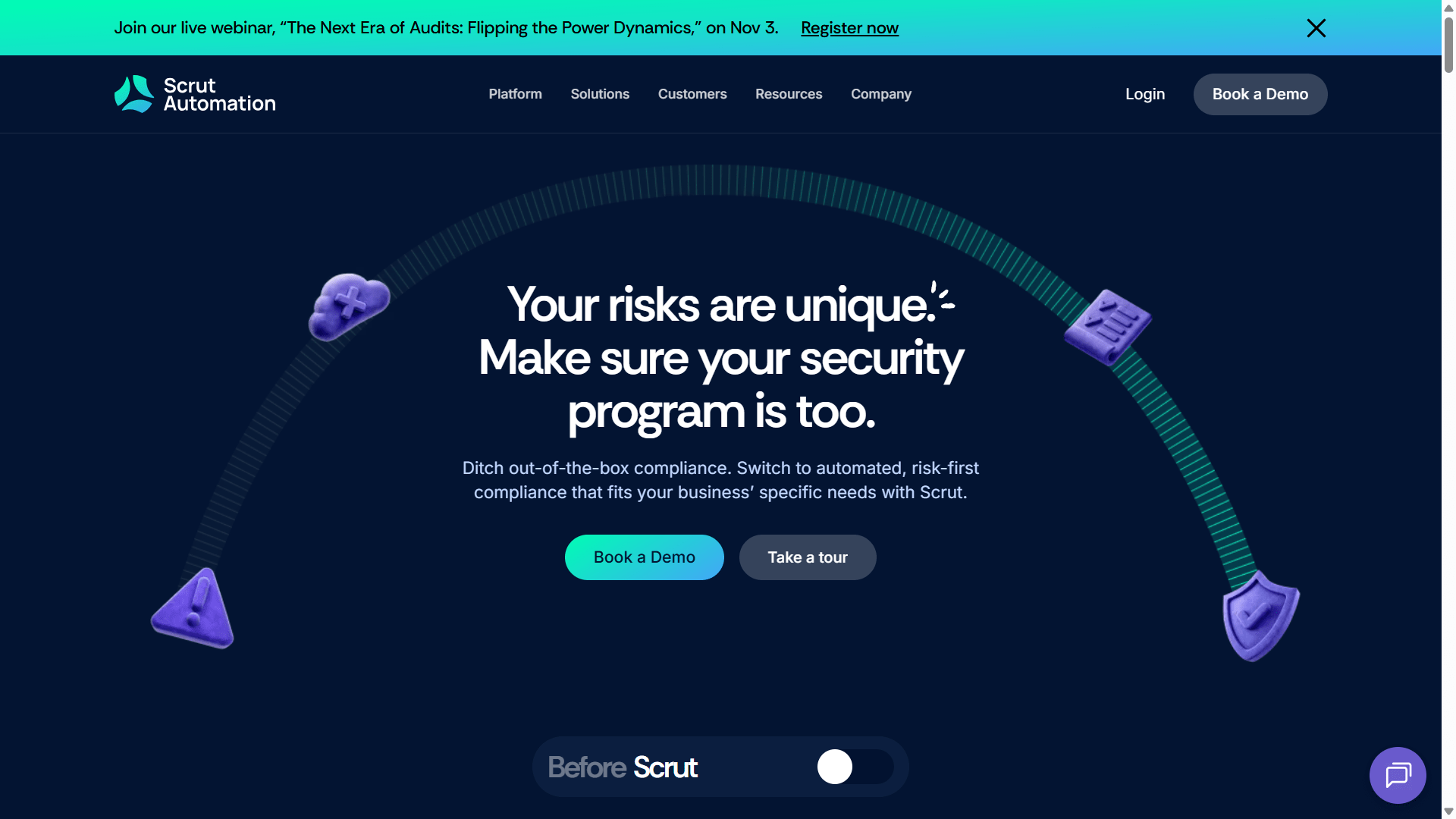
Overview:
Scrut offers compliance automation with a strong focus on affordability and ease of use. It’s ideal for small teams managing multiple frameworks.
Key Features:
SOC 2, ISO, GDPR templates
Automated risk assessments
Integrations with AWS, GCP, and Azure
Audit-ready dashboards
Pricing:
Estimated $5,000–$20,000 per year, depending on company size.
Pros: Affordable, great user experience, good for multi-framework compliance.
Cons: Limited enterprise features compared to Drata or Vanta.
Best for: Fast-growing SaaS startups that want all-in-one compliance without high costs.
6. SafeBase — Perfect for Building Trust Centers
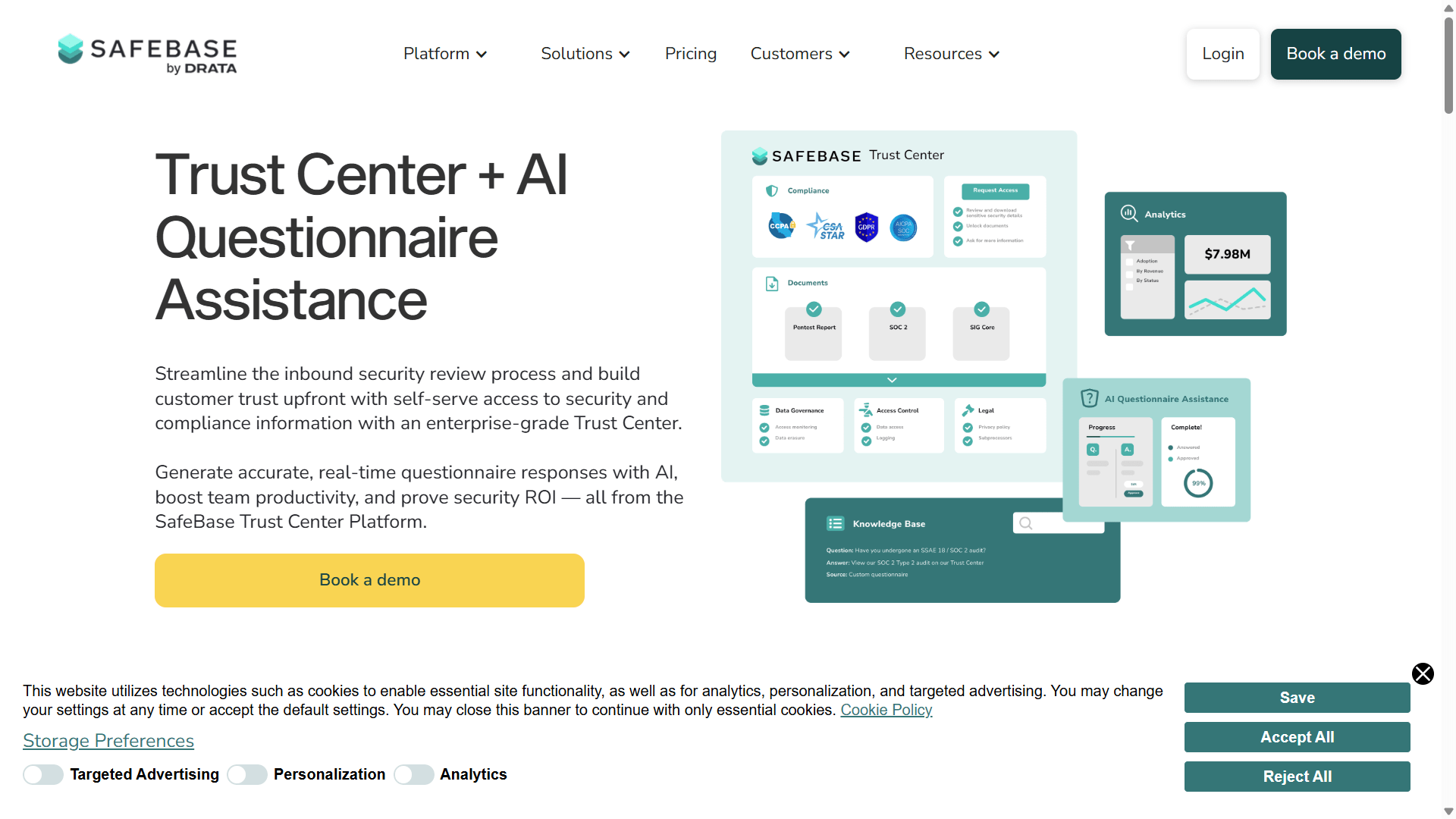
Overview:
SafeBase focuses on security trust centers and automating security questionnaires. It helps you display your compliance posture publicly, which can shorten sales cycles.
Key Features:
Public trust portal
Access control for security docs
Questionnaire automation
Customer trust analytics
Pricing:
Varies; smaller plans start around $5,000–$10,000/year, larger plans in the mid-five-figures.
Pros: Great for sales enablement and customer trust.
Cons: Not a full compliance suite — best used alongside another automation tool.
Best for: Sales and security teams that want to showcase compliance to clients.
7. Hyperproof — Enterprise-Level GRC for Mid-Sized Companies
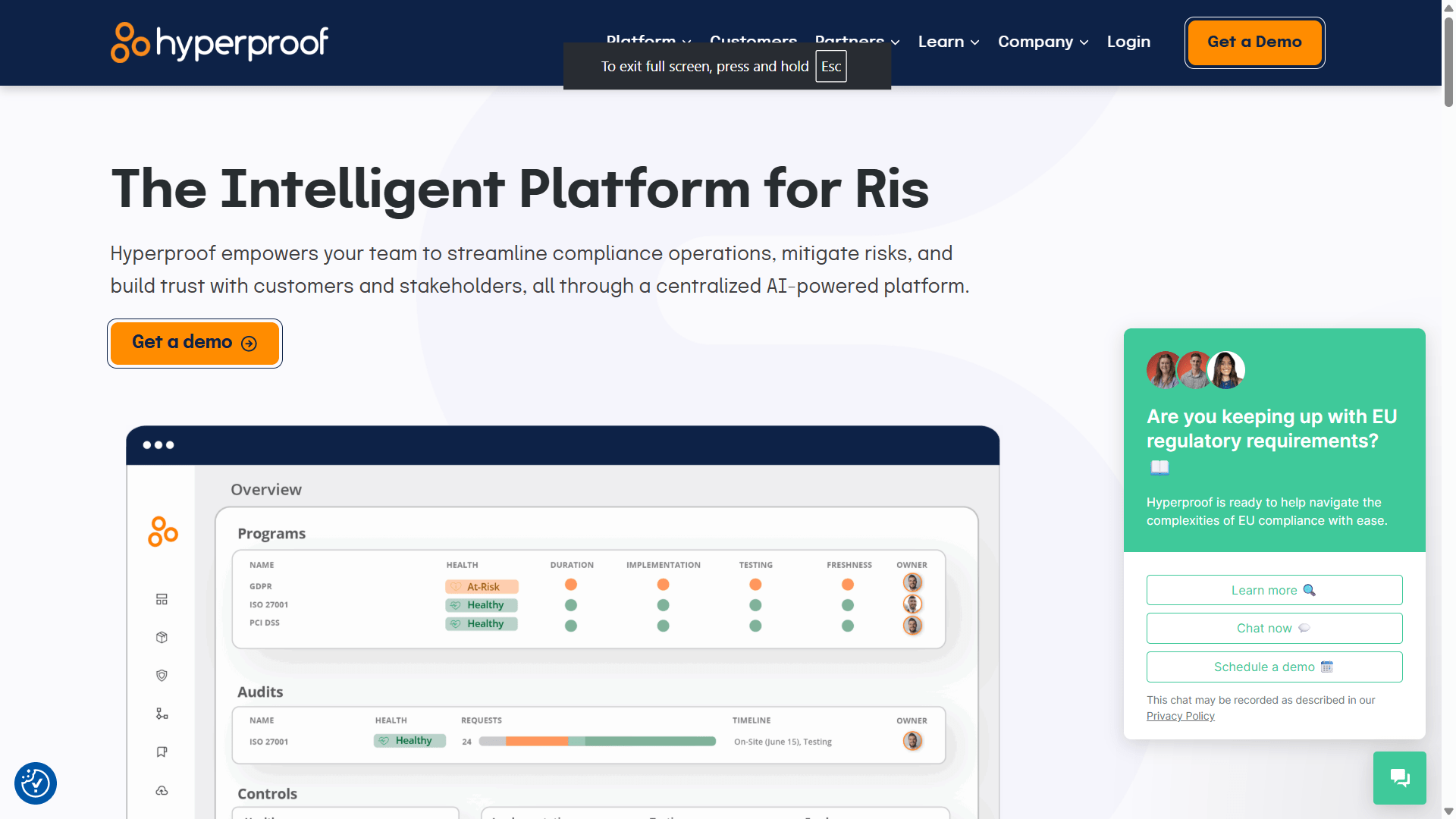
Overview:
Hyperproof bridges the gap between automation and full GRC (Governance, Risk, and Compliance) management. It’s more robust than Vanta in reporting and risk management.
Key Features:
GRC dashboards and risk registers
Automated control mapping
Evidence library
Continuous monitoring
Pricing:
Starts at $12,000/year, scales with frameworks and users.
Pros: Deep GRC and audit management capabilities.
Cons: Higher learning curve; overkill for very small startups.
Best for: Mid-sized or enterprise teams scaling compliance operations.
8. Tugboat Logic (by OneTrust) — Questionnaire Automation Powerhouse
Overview:
Now part of OneTrust, Tugboat Logic focuses on automating questionnaires and compliance documentation.
Key Features:
Pre-built policies and controls
Automated audit readiness
Vendor security questionnaire responses
Evidence tracking
Pricing:
Starts in the low-thousands per year; mid-range plans $10,000–$15,000/year.
Pros: Excellent for managing questionnaires and audit prep.
Cons: Post-acquisition pricing varies; slower updates.
Best for: Teams that want documentation automation and sales enablement.
9. UpGuard — Best for Vendor Risk & Cyber Posture Monitoring
Overview:
UpGuard is known for vendor risk management and external security ratings. It’s perfect for companies needing to monitor both their own and vendor security posture.
Key Features:
Continuous cyber risk ratings
Vendor security questionnaires
Policy management
Compliance dashboards
Pricing:
Starts at $1,599/month (~$19,000/year).
Pros: Excellent for vendor risk and TPRM programs.
Cons: Not a direct SOC 2 audit automation tool.
Best for: Companies prioritizing third-party risk and security posture visibility.
10. Whistic — Vendor Security and Trust Sharing Platform
Overview:
Whistic helps organizations showcase and evaluate vendor security postures through shared trust centers and questionnaires.
Key Features:
Vendor risk assessments
Automated questionnaire sharing
Public trust center
Integrations with Salesforce and GRC tools
Pricing:
Custom quotes; smaller packages for startups available. Enterprise plans reach the mid-five-figures.
Pros: Streamlines vendor risk management and accelerates sales.
Cons: Not a compliance automation tool by itself — best as an add-on.
Best for: Sales teams and enterprises managing hundreds of vendors.
For more articles visit

